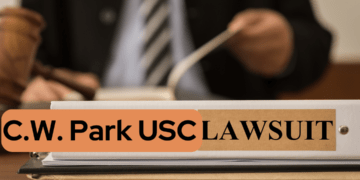Unfortunate as it is, clergy abuse is still quite common. The law has been amended in recent years to make it easier for the victims to seek help, protection, and justice, but seeking legal action against an influential religious figure is never really easy. Keeping the practical aspects of clergy abuse cases in focus, here are a few useful pointers that will help you decide when it’s time to seek legal help against clergy abuse.
When the Actions Qualify as Such
Before taking any legal steps, you should at least have a basic understanding of what constitutes as abusive action in such cases. When one or more high ranking members of the concerned clergy are involved in abusing and/or exploiting one or more members of their congregation in any manner, it’s called clergy abuse.
In most cases, the immoral use of hierarchical power for abuse and exploitation is sexual in nature, but physical, mental, and financial exploitation from a high-ranking member of the church also qualifies as clergy abuse. It should be noted that both children and adults can be victims of clergy abuse. The most commonly reported actions of clergy abuse include but are not limited to:
- Sexualizing direct or indirect conversations, chats, texts, calls, etc.
- Asking for or sending media (picture, audio, video) of a sexual nature.
- Any kind of physical touch that makes the person on the receiving end uncomfortable.
- Any kind of sexual activity.
It should be noted that if the victim is a minor, then whether the action was consensual or not is irrelevant. Any and all forms of sexual action from any clergy member immediately qualify as an instance of sexual abuse if the victim is underaged.
If the victim is an adult, then whether the act was consensual or not will matter. Nevertheless, even instances of consensual sexual activity between an adult member of the congregation and a high-ranking member of the clergy can still qualify as a case for exploitation of power. Contact Romanucci and Blandin for a free consultation on clergy abuse cases to know more.
When There is Evidence
A lack of evidence does not mean the alleged person is innocent but gathering evidence before launching a fully-fledged clergy abuse case against the person is highly advisable. It helps in building a stronger case against the alleged priest/minister. Texts, images, voice calls, and conversations are exceptionally easy to record nowadays, so collecting evidence should not be difficult.
When You Are Sure
Major sexual abuse requires immediate and swift legal action. Report it to the police, consult with your physician, and call up a clergy abuse lawyer as soon as possible. If an underaged member complains about sexual abuse by a clergyperson, but no evidence can be found to support their claim, it’s still best to play it safe and ensure that the concerned ministry is avoided from that point on.
While false allegations are not entirely uncommon either, but that’s not a risk worth taking. As a parent or a guardian, it’s of the utmost importance that you never undermine the complaints of abuse from your child.




















